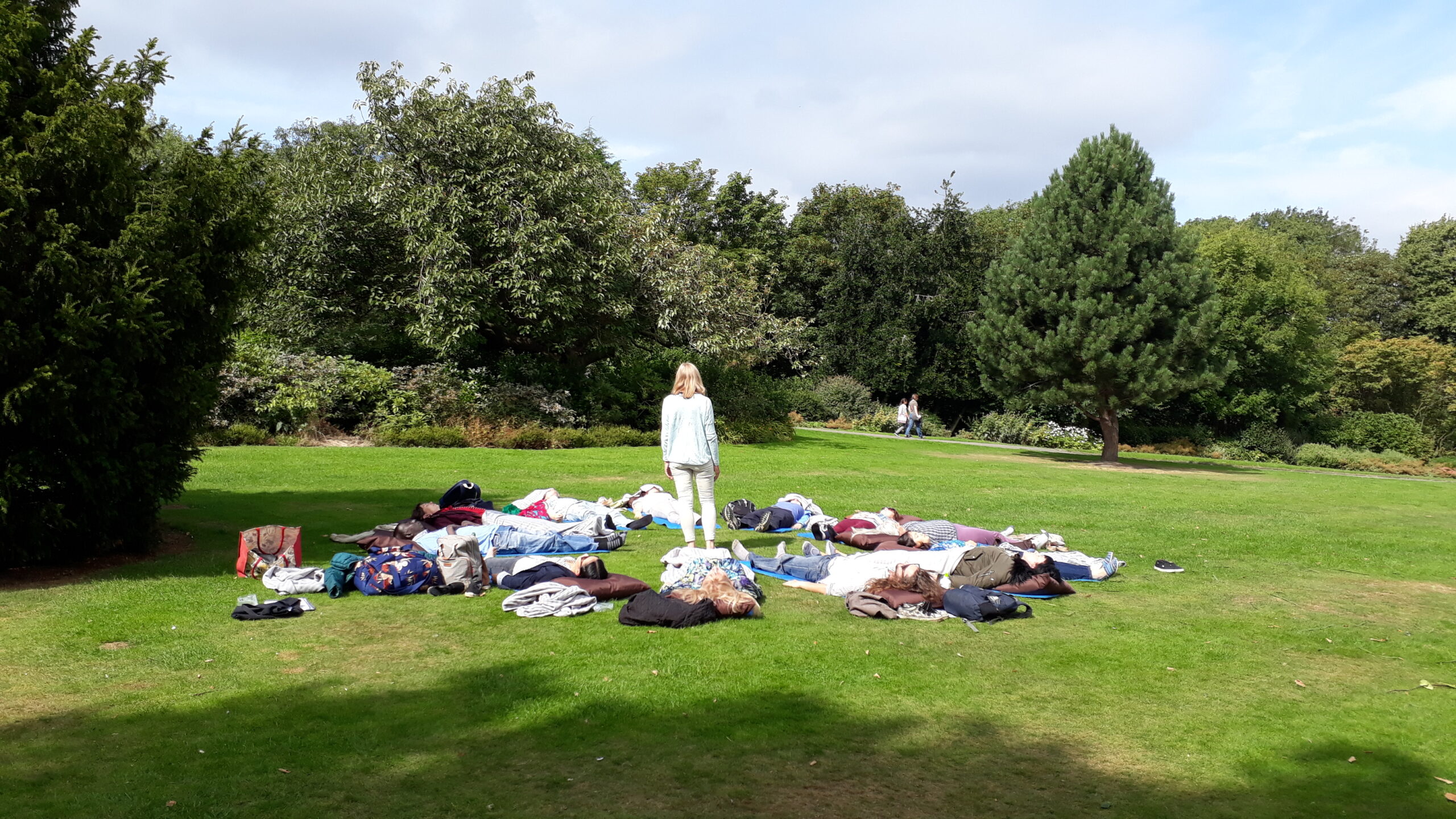Mindfulness meditation is a mental training practice that teaches people to pay attention to the breath and body, while simultaneously becoming more aware of thoughts, sensations and feelings manifesting in the present moment. While they draw inspiration from Eastern and Buddhist practices, mindfulness exercises have also been introduced in Western healthcare settings, to reduce stress or anxiety and improve wellbeing.
The introduction of mindfulness into Western society was in great part attributed to Dr Jon Kabat Zinn, Professor of Medicine emeritus at the University of Massachusetts Medical School and founder of the Mindfulness-based Stress Reduction (MBSR) program. Kabat Zinn also founded the Stress Reduction Clinic in 1979 and the Centre for Mindfulness in Medicine, Health Care, and Society in 1995, two healthcare centres that offer MBSR training for both individuals and professionals.
MBSR is a stress reduction program based on intensive mindfulness training practices. While it was initially designed for people with chronic health problems, the program has since been applied to countless other people looking to improve their wellbeing.
The effectiveness of the MBSR program in helping individuals to cope with stress and become more aware of their present experiences has been confirmed by countless research studies. As a result, the training is now offered in many countries worldwide and has become a reference for numerous therapists and health practitioners.
So far, most MBSR programs have been carried out in indoor settings, such as clinics, health centres or community centres. A team of researchers at University of Sheffield and University of Derby, however, has recently set out to investigate whether the program might be more effective in enhancing people’s wellbeing when conducted in outdoor natural environments.
“To date, there is a considerable amount of evidence on the salutogenic effects of exposure to natural environments, be it passive or active exposure,” says Eun Yeong Choe, one of the researchers who carried out the study. “However, this field of research does not sit within medical or health care disciplines. Our study was one of the first to incorporate an environmental effect into a commonly used wellbeing intervention.”
To test whether MBSR is more effective in natural settings, Choe and her colleagues recruited 99 participants and randomly divided them into three groups of 33. Each of these three groups participated in MBSR training, yet they were asked to attend sessions in three different environments: a natural outdoor setting, an outdoor setting with man-made constructions, and an indoor environment.
The team asked participants in the three groups to complete questionnaires assessing their wellbeing and mental health at four different points in time. More specifically, their responses were collected before they started the training, after the third MBSR session, one week after they completed the program and one month after the program had ended.
“Our study offers fine-grained insight into existing knowledge of the enhancement of natural environments through the experimental design and the multiple outcome measures,” Choe says. “The findings we gathered could help healthcare practitioners to carefully choose suitable locations for intervention delivery and to develop new wellbeing interventions involving natural environments.”
Overall, participants who completed the MBSR training in a natural environment reported significantly greater improvements in both mental health and general wellbeing throughout the course of the six-week training. Moreover, these improvements appeared to be sustained even after one month after the program’s completion.
The results gathered by Choe and her colleagues could have numerous interesting implications. Most notably, they highlights the value of outdoor natural environments as settings for the MBSR program and thus potentially also for other mindfulness-based therapeutic interventions.
“So far, we only focused on MBSR, but more studies on the value of natural environments as settings for a wider range of health care programmes could encourage the NHS and other statutory providers to develop more effective interventions with local natural environments,” Choe says. “On a broader level, our work may also suggest that national or local government planning departments and land-use developers should consider the mental health and wellbeing of residents when designing neighbourhoods.”
While many meditation retreats and stress reduction programs take place in natural environments, most MBSR programs for improving people’s mental health are still delivered in healthcare facilities. This team of researchers was among the first to assess the benefits of delivering MBSR in natural outdoor settings and their findings suggest that such settings could actually enhance the effectiveness of the program.
However, as their study was carried out with a relatively small sample of participants, further studies with larger samples may be needed to confirm the validity of these initial results. Meanwhile, Choe has also started conducting studies exploring the differences in the effects of mindfulness-based practices conducted in real and simulated natural settings.
“My further studies could provide encouragement for the development and use of simulated natural environments to help with the life experiences of various ‘at risk’ groups, such as care home residents, the mentally ill and those with disabilities,” Choe adds.
In the future, studies like those conducted by Choe could significantly broaden the current understanding of how specific environments might affect therapeutic programs. This could ultimately lead to the development of mental health interventions that are further enhanced by the places or settings they are implemented in.
“Traditional approaches for evaluating health care interventions have focused on their effectiveness alone and overlooked the impact of the place where they are carried out,” Choe says. “I also believe that future studies should take a broader perspective evaluation across disciplines, involving researchers, practitioner and policy makers.”
Image Caption: Doing MBSR in the park, Sheffield (MBSR teacher, Rosalind Hoyes, with participants). Credit: University of Sheffield.
References:
https://www.sciencedirect.com/science/article/abs/pii/S0169204619307893#!

